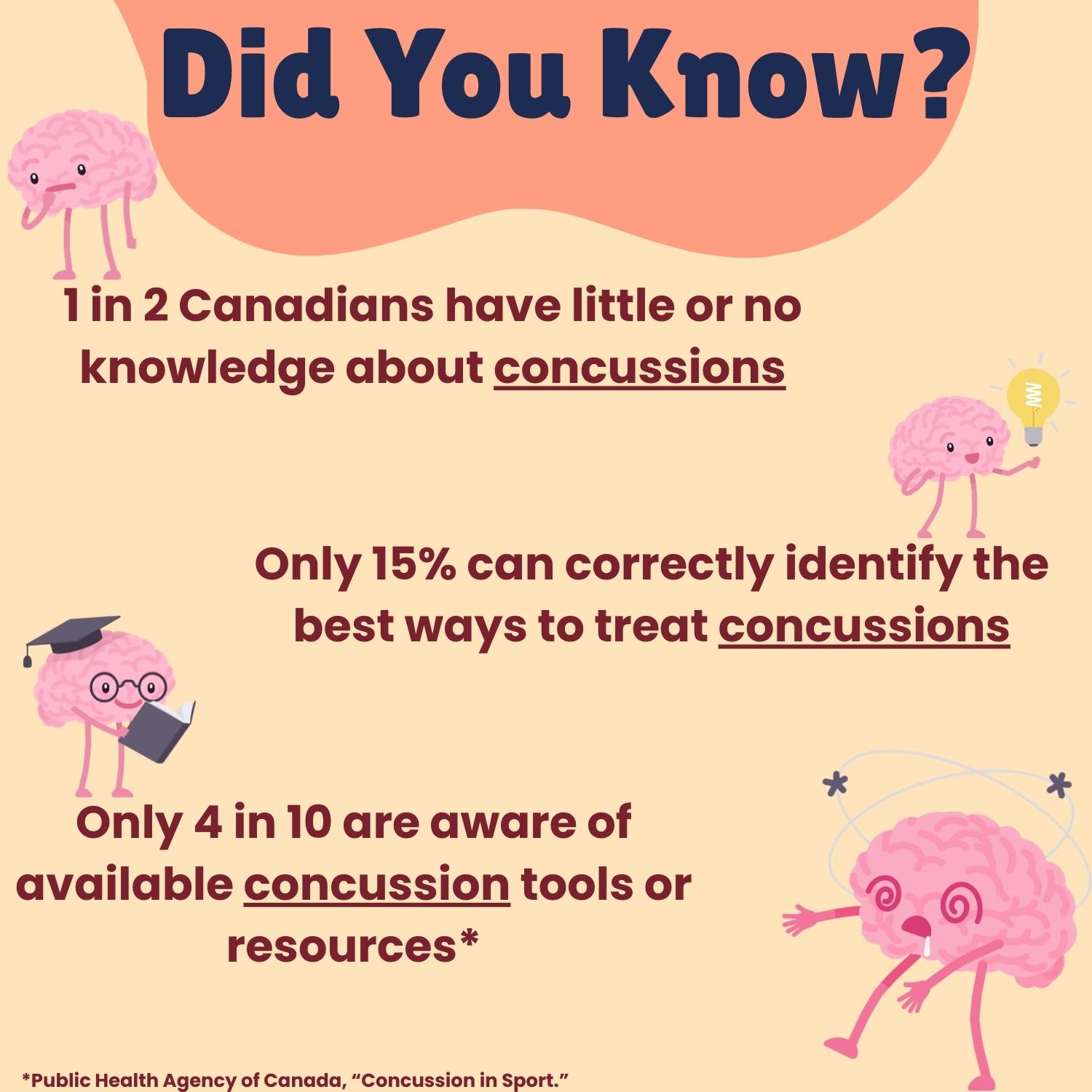
As we transition from hockey season to spring and summer sports like soccer, football, and rugby, it’s important to keep ourselves up to date on the proper treatment for concussion. While it’s not the only way to receive a concussion, contact sports can put people more at risk of concussions. Our physiotherapists at Motion Works Physiotherapy Stittsville explain common symptoms and treatment options for concussion.
What is a concussion?
Concussions are a form of traumatic brain injury. Since they can be caused by any kind of blow to your head, they are most commonly found in people who engage in activities where you are more susceptible to hitting your head. This includes sports, particularly contact sports, activities that have a risk of falling, cycling, etc.
Essentially, when an impact to the neck, head, or face jostles the brain, it can be damaged. As a result it becomes more difficult for brain cells to communicate and properly function. This damage, or traumatic brain injury, is what we call a ‘concussion’. According to the Government of Canada, there were “approximately 46,000 diagnosed concussions in 2016-17 by hospital emergency departments for children and youth 5-19 years of age”. With ice hockey, rugby and ringette being the sports with the highest cause of concussion among kids 5-19 years old, “ranging from 27% to 44% of all injuries that happened while playing these sports”.*
*Public Health Agency of Canada. “Concussion in Sport.” www.canada.ca/en/public-health/services/diseases/concussion-sign-symptoms/concussion-sport-infographic.html.
Symptoms of a Concussion
The symptoms of concussions can appear any time, from the moment you sustain a blow to your head, to minutes or even hours after the injury. Symptoms may vary based on the severity of your concussion and may be divided into two categories: self-reportable ones and observable ones.
Self reportable concussion symptoms may be:
- Difficulty remembering the time around the injury.
- Confusion.
- Headache or a sense of pressure in the head.
- Unsettled by noise and light.
- Issues with concentration or memory.
- Problems with dizziness, balance, and double or blurry vision.
Observable concussion symptoms may be:
- Nausea or vomiting.
- The individual shows changes in behaviour, personality, or mood.
- Individual looks dazed or stunned or seems confused.
- Person moves more clumsily than usual and answers slowly.
- A loss of consciousness, even briefly.
.

Physiotherapy Treatment for a Concussion
It usually takes anywhere from 7-10 days for the symptoms of a concussion to subside. However, depending on the severity, or if you have sustained a concussion in the past, it can sometimes take much longer.
Physiotherapy for concussion rehabilitation at Motion Works Stittsville can be an effective treatment for the management of concussion symptoms. A sports medicine and physiotherapy clinic will be able to offer you a range of treatment plans which are tailored to your needs—including the specific severity of your injury.
During your initial assessment with your physiotherapist, they will collect as much information as possible about your injury, your medical history and any symptoms you are exhibiting. Your physiotherapist will then conduct a comprehensive physical exam of your neck and back to ensure you have not injured your neck or spine in addition to the concussion.
Depending on the stage of healing you are in with your concussion, your physiotherapist may recommend more rest until you have healed further, or will begin treatment that day. Rest is an incredibly important part of healing from your concussion. If you exert yourself too soon, you can worsen your concussion symptoms, and overall condition.
When your physiotherapist believes it is safe to proceed, they will then begin treatment for your concussion symptoms. This will include a custom exercise program targeted at your unique injury, including exercises to strengthen your neck and back muscles, balance training to help restore your vestibular system's function, and ocular reflex training to get rid of any visual disturbances. They will also do manual therapy during your sessions in the clinic. Your physiotherapist may use a variety of tools (hot or cold packs, dry needling/acupuncture, etc.) and machines (ultrasound, electrical muscle stimulation, etc.) to help target specific muscles, increase blood flow, and reduce any swelling or other symptoms of the concussion.
